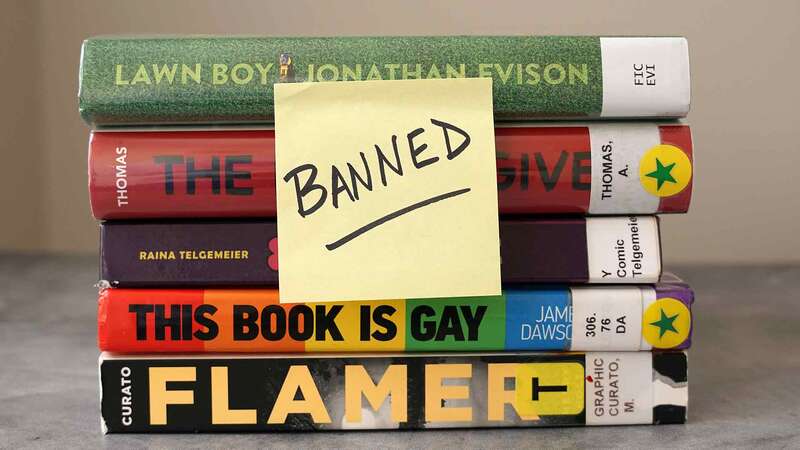You are viewing your 1 free article this month. Login to read more articles.
Rewarding the longlist
How might a literary prize disrupt the literary prize culture? Perhaps by reversing the structure: announcing the winner first, then the shortlist, followed by the longlist – making it clear the most important aspect of a prize is its depth and breadth: building from one great book towards a whole range of great books, with something on there for all readers. But would it work?
How might a literary prize disrupt the literary prize culture?
Perhaps by reversing the structure: announcing the winner first, then the shortlist, followed by the longlist – making it clear the most important aspect of a prize is its depth and breadth: building from one great book towards a whole range of great books, with something on there for all readers. But would it work?
The problem is that most enjoyable moments of a literary prize schedule are wondering who will make the shortlist, then who might win, and then arguing over the judges’ choice of the winner. Can the joy be reverse-engineered? Presented with the winner, is anyone going to say, I wonder from what five books it was chosen? And after the shortlist is released, will bookshops wait for the longlist announcement with a finger over the order button to bring in mountains of copies of… all of them? It’s doubtful.
Wisely, then, the Republic of Consciousness Prize for Small Presses 2021 hasn’t started with the winner. I am not sure it would have been possible without delaying the announcement indefinitely, such is the strength of the longlist; it’s a small miracle judges Eley Williams, Guy Gunaratne and John Mitchinson found their way down to ten. It’s never been easy for RofC judges that the prize allows short and long form fiction, translated fiction, and we welcome experimentation and difficulty with the same open arms as we do elegant sentences and great storytelling. In many ways we are all the other prizes wrapped into one, except eligibility criteria means publishers can only have five or fewer fulltime staff, which makes us unique.
The longlist announcement is my favourite day of the prize cycle. Yes, there is disappointment. We at the prize know which publishers didn’t quite make it. But it brings the most joy, and there is nothing quite so gratifying as watching Twitter activity ramp up and seeing these lovingly published books introduced to new readers across the world. But I’ve always hoped we could do more.
So if the sharp end of a prize schedule is the winner announcement, and this cut-through is necessary, how might a literary prize disrupt the literary prize culture? When I founded the Republic of Consciousness Prize in 2016, it was always the intention to spread what prize money we had around. In our inaugural year, four presses received at least £1000. In 2018, we started to share the majority of the prize fund with the shortlist, with the winner receiving a little extra. In 2019 we did the same, but with two winners.
Then came 2020. We had planned to do the same thing, dividing the majority of money between a shortlist, and giving the winner a boost. However, Covid-19 changed things. We were entering the first lockdown, and one-by-one our events programme began to fall away. A shortlist reading event in Brick Lane, a small press fair in Bristol and the winners announcement at the London Review Bookshop: all cancelled. Publishers were experiencing similar difficulties, with bookshops closing, publicity tours postponed or going online. Of course, as we learned the human cost of the virus, a cancelled event or delayed publication date is trivial. But there was, amid all the other worries, a genuine fear for the future of small press publishing. On the other hand, there was a genuine sense of community, with writers, publishers and readers supporting one another, and it is thanks to this, and the quick action of Arts Council England, that many small presses came through 2020 in relatively good health. We tried to do our bit. Once the judging panel had chosen our winner –Fitzcarraldo Editions for Animalia by Jean Baptiste Del-Amo, tr. Frank Wynne – we decided that in these “strange, unprecedented times” – and who here never wants to hear the word “unprecedented” again? – to split all the prize money equally with the shortlist.
The times are still strange, even though we’ve now been here before. And we therefore see no reason to go back to old ways. Indeed we want to define a new way of doing things when it comes to literary prizes. As we enter our fifth year, and thanks to an award from the Granta Trust and the continuing support of the University of East Anglia, we have doubled our prize fund to nearly £20,000. Therefore we are able to enact what we’ve wanted to do for the longest time: we are giving half our prize fund to the longlist. This year ten small presses will each receive £1,000. We appreciate it’s not a huge amount, but we hope it helps in some small way. And it’s only the start.
With the support of our sponsors and partners, and through growing our Book of the Month programme (please join!), we hope to be able to award more substantial amounts to our longlisted publishers every year. The rest of the fund, like last year, will be shared equally by the shortlist. While the longlist award is entirely for the publishers, the shortlist money will be split 50/50 between publisher and author.
As for the winner? What could be better than winning?
Neil Griffiths is an awarding winning novelist of Betrayal in Naples, winner of the Writers’ Club Best First Novel; Saving Caravaggio, shortlisted for the Costa Novel of the Year; and As a God Might Be. He is the founder of the Republic of Consciousness Prize for Small Presses. In 2020 he co-founded Weatherglass Books with Damian Lanigan – their first title, Cold New Climate by Isobel Wohl, is published in April.









